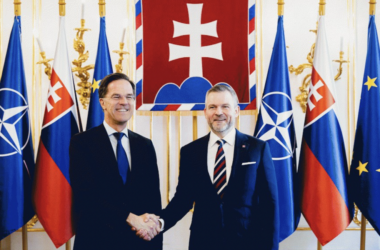Austria’s pro-migration experiment is unraveling, with alarming new data exposing its consequences. Nearly 45% of first-graders in Vienna’s public schools lack the German skills needed to keep up in class, according to Der Standard.
Even more unsettling, this figure was just 36% two years ago.
This isn’t just a linguistic issue—it’s a glaring indictment of Austria’s inability to integrate migrants into society. In districts with heavy migrant populations, the numbers are staggering. Take Margareten: here, over 73% of first-graders struggle with German, mirroring the district’s 52% migrant demographic from last year.
Worse still, 61% of these children were born in Austria, and nearly a quarter hold Austrian citizenship. Clearly, the problem isn’t a matter of recent arrivals; it’s a deeper failure in fostering assimilation. Unsurprisingly, this language barrier drags down long-term educational outcomes. International PISA tests show migrant teens in Austria lagging significantly behind in reading, math, and science.
The opposition People’s Party has proposed early interventions. They suggest mandatory language assessments for three-year-olds, with extended kindergarten for those needing improvement. It’s a step toward accountability, but under Vienna’s Social Democrat leadership, the capital has become a magnet for migration, exacerbating the problem.
The city’s generous welfare policies make Vienna particularly appealing. Reports of a Syrian family receiving €4,600 monthly in social benefits have sparked outrage. No wonder half of Austria’s accepted asylum seekers eventually settle in Vienna, regardless of where they initially lived.
“When you learn in Syria and Afghanistan that as an extended family you can get €4,600 euros from Viennese social benefits alone for doing nothing, then you don’t have to be surprised if these people all come to Vienna,” said Dominik Nepp of the anti-immigration FPÖ party.
Vienna’s cultural fabric is fraying under the weight of its policies. With nearly 50% of residents either migrants or children of migrants, the Austrian capital is confronting a hard truth: unchecked migration and lax integration policies have reshaped its society—for the worse.




